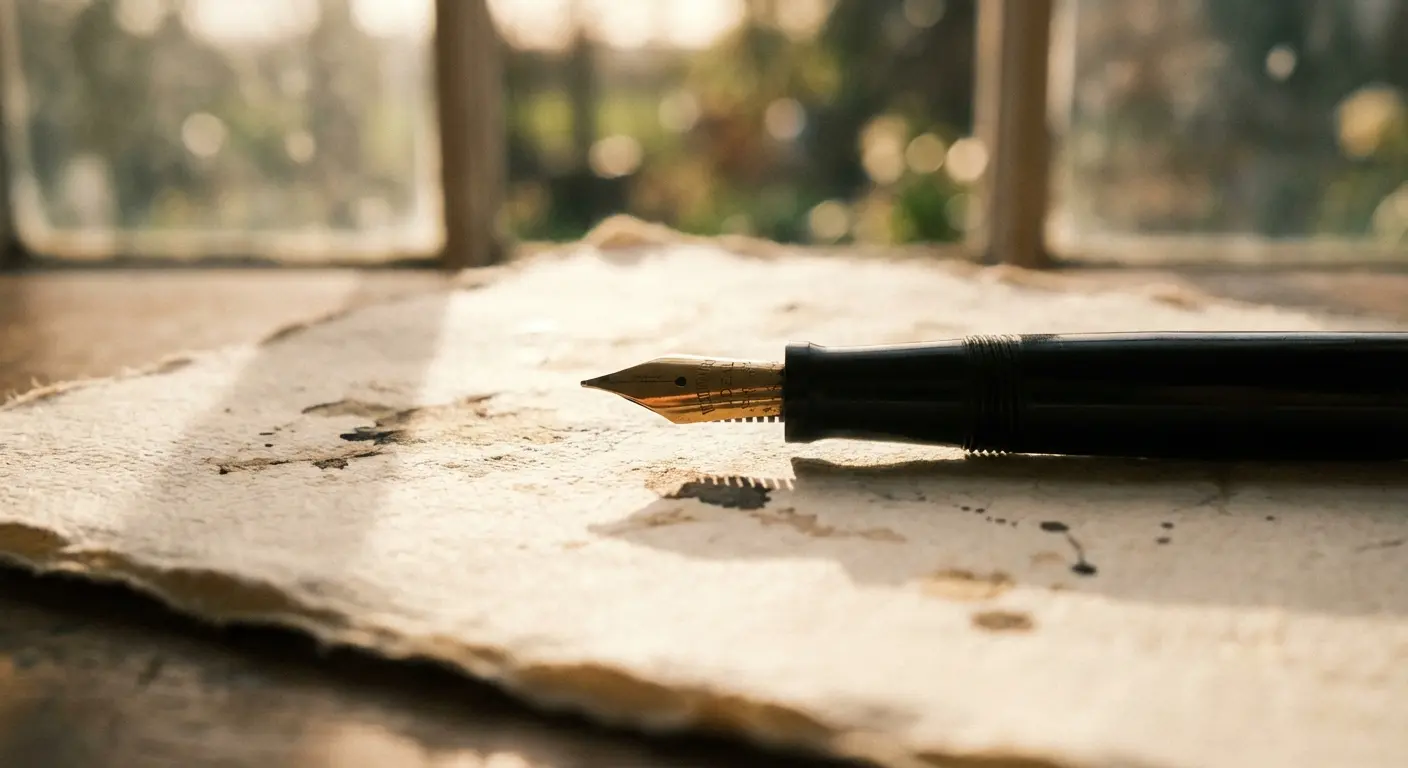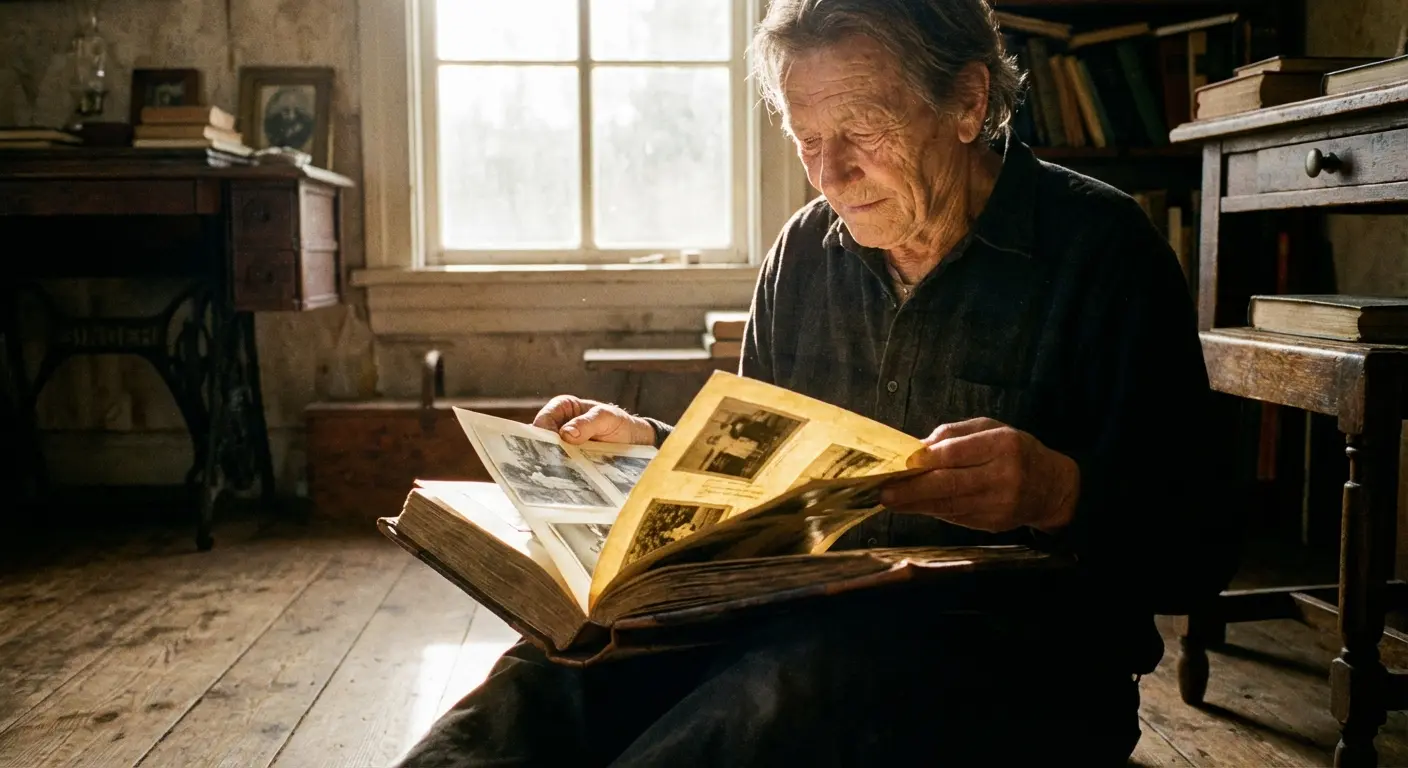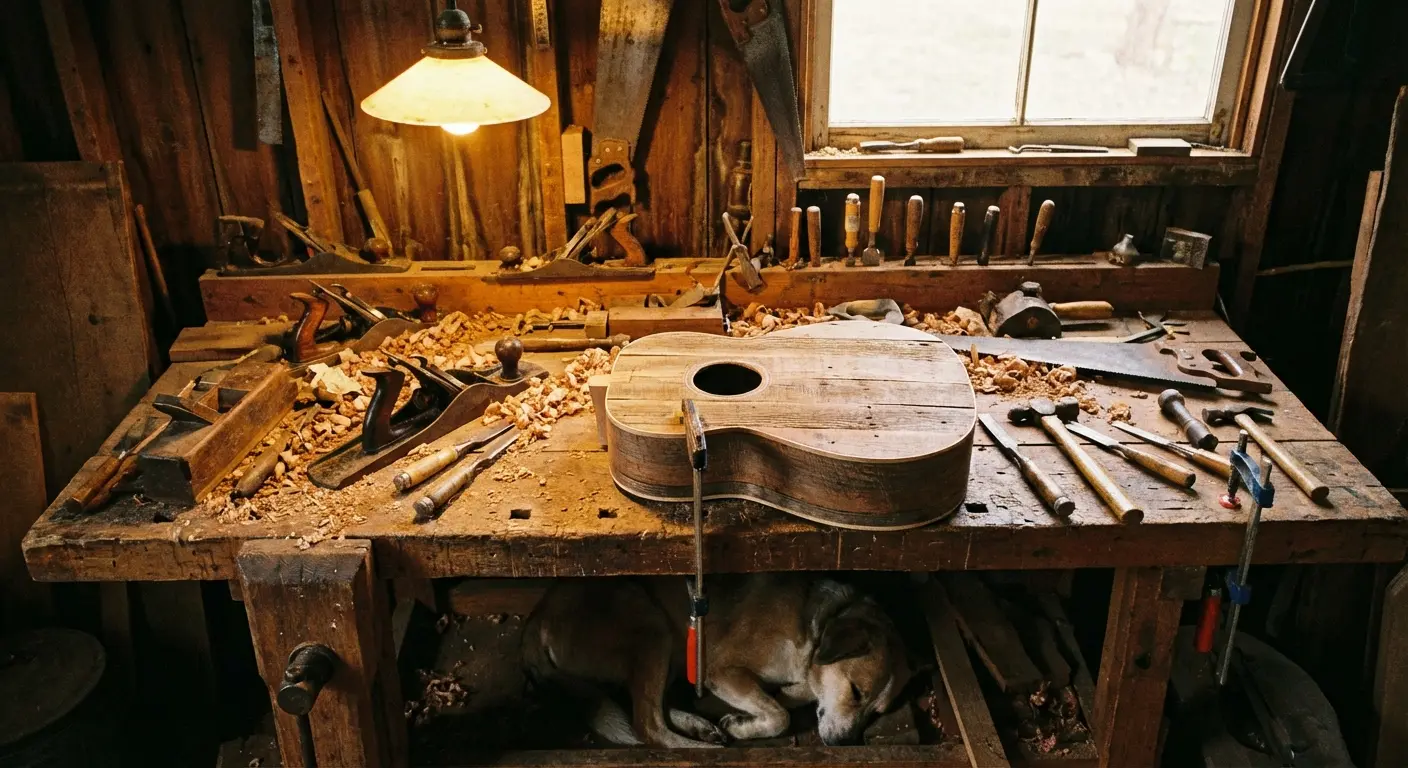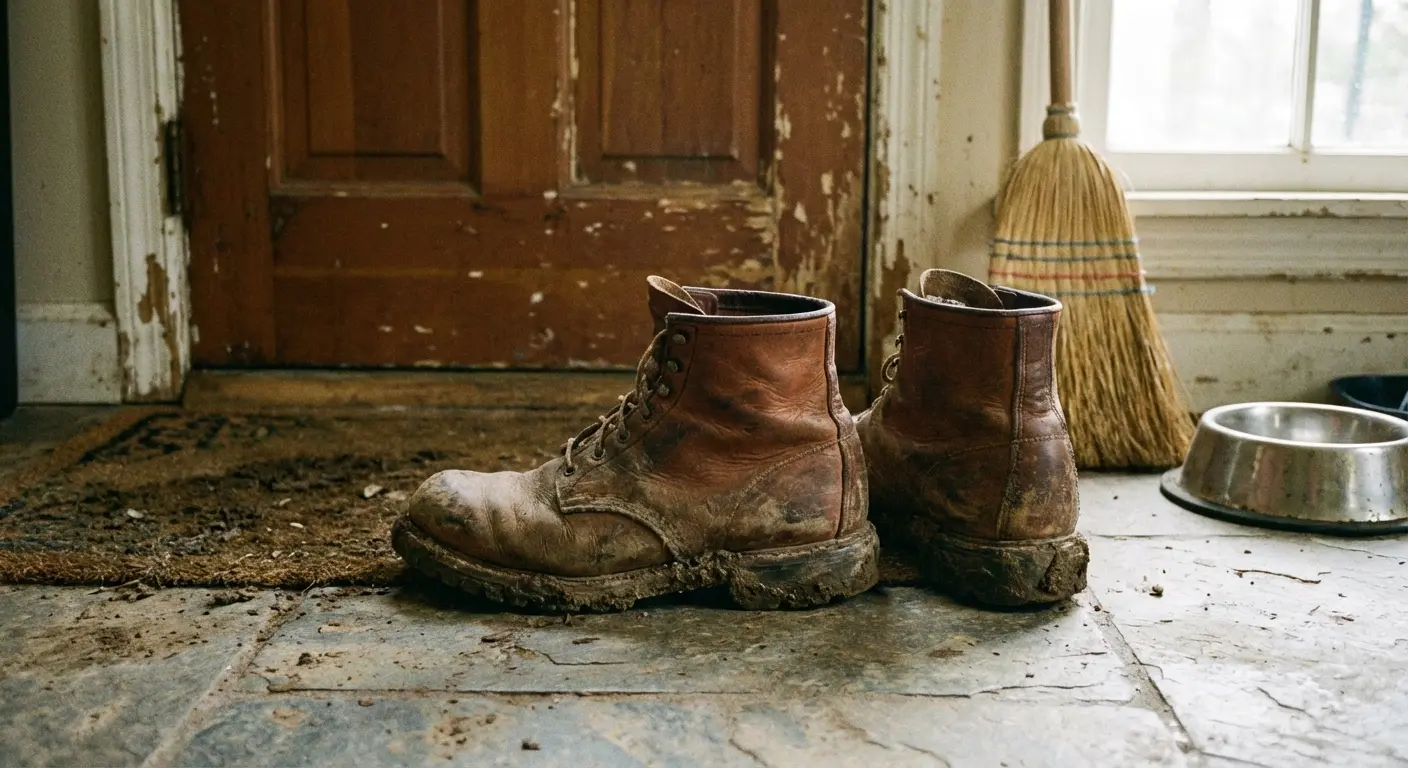
Technically, most eulogies are about 6 to 8 minutes long. But knowing the word count doesn’t make the task any easier. I remember sitting in front of a blinking cursor the night before a funeral, feeling completely paralyzed. How are you supposed to compress decades of life, love, and arguments into a few pages? Summing up a human being feels impossible because, frankly, it is.
Quick Resource
Dad Eulogy Generator
https://eulogygenerator.com/dad-eulogy-generator/
A guided writing tool created specifically for honoring fathers—helping you turn memories, personality, and stories into a eulogy that sounds like your dad, not a template.
If you’re feeling that pressure right now, take a breath. We put this guide together not to give you a strict rulebook, but to give you a jumping-off point when the words just won’t come. Whether you need a full roadmap or just a tiny spark to get started, these examples are here to help you write something that actually sounds like him.
We’ve broken this down by “personality type” rather than a standard list. We’ll cover the guys who were mentors, the jokers, the quiet stoics, and even the complicated relationships that are hard to talk about. We’ll also touch on how to use tools to get unstuck if you’re hitting a wall.
The Short Version (TL;DR)
If you are short on time and just need the basics, here is the gist. A great eulogy isn’t a resume; it’s a highlight reel of character. You don’t need to list every job he ever had. Focus on who he was.
- Pick a Theme: Don’t list dates. Tell stories that show what he was like (generous, stubborn, funny).
- Match His Vibe: If he was a prankster, it’s okay to be funny. If he was serious, keep it respectful.
- Be Real: You don’t have to paint him as a saint. It’s okay to acknowledge that things weren’t always perfect.
- Keep it Short: If you’re worried about crying (which is totally normal), write something shorter. It’s easier to get through.
- Use Help: Templates are just starting blocks. You have to add the paint.
| Dad’s Style | The Vibe | Focus On… |
|---|---|---|
| The Mentor | Steady and respectful | The advice he gave and the example he set. |
| The Humorist | Warm and punchy | Using laughter to get through the hard times. |
| The Stoic | Concise and deliberate | Actions speaking louder than words. |
| The Complicated | Honest and balanced | Accepting his humanity and finding peace. |
Before You Start Writing
Think of this speech as a legacy statement, not a biography. The old “born here, went to school here, worked here” format usually puts people to sleep, and it rarely captures the essence of a dad. You have to look at the relationship first. Talking about deep emotional chats feels wrong if he was the silent, “strong type.” If you are struggling with the basics of structure, review our guide to writing eulogies for dad which breaks down the standard components.

Also, check in with yourself. How much can you handle right now? If you’re terrified of breaking down on stage, there is no shame in writing a letter format or sticking to a 3-minute limit. When you sit down to write, remember: the goal is connection, not perfection. People just want to feel like they’re remembering him with you.
If you’re unsure how to structure this or where to begin,
the Dad Eulogy Generator can help you find a clear starting point:
https://eulogygenerator.com/dad-eulogy-generator/
Type A: The Mentor & Role Model
This is for the dads who were the family compass. Maybe he was a literal teacher, a coach, or just the guy you called whenever your car broke down or you didn’t know how to file your taxes.
1. The “North Star” Approach
This angle works well if he didn’t lecture you, but taught you by example. You focus on the idea that he showed you how to be a person. Share a specific moment where he did the right thing when no one was looking.
Example: “Dad never gave me a lecture on integrity. He just lived it. I remember a cashier gave him an extra $10 in change once. He didn’t wait; he turned right around and gave it back. That moment taught me more than any textbook. He was my North Star, and even though he’s gone, I still know which way is North because of him.”
2. The Handyman/Fixer
We use “fixing things” as a metaphor here. If he was always in the garage or the workshop, this is a great way to tie his hobbies to his love for the family. He fixed leaky faucets, but he also fixed your problems.

3. The Coach
Did he teach you resilience? This speech uses sports or competition as the backdrop. Talk about the early morning practices or the ride home after a loss. It’s about how he taught you to get back up.
4. The Quiet Teacher
Some dads are men of few words. This speech honors the silence. You explain that because he didn’t speak just to hear his own voice, you really listened when he did. It makes his wisdom feel more weighty.
5. The Anchor
This is about safety. Open by saying the house felt safe just because his car was in the driveway. It’s a bit more emotional, focusing on him as your safety net. If you are a daughter writing this, you might want to check out this guide specifically for daughters.
Want help turning lessons and guidance into a meaningful tribute?
Use the Dad Eulogy Generator to build around these examples:
https://eulogygenerator.com/dad-eulogy-generator/

Type B: The Humorist & Life of the Party
If your dad was the guy telling terrible jokes at Thanksgiving or making friends with waiters, this is the category for you. Don’t be afraid to let people laugh. It breaks the tension in the room. If you are worried about striking the right balance, our article on funny eulogies for dad offers specific tips on how to land the jokes without losing the sentiment.
6. The “Dad Joke” Opener
Start with his absolute worst joke. Seriously. It immediately brings his spirit into the room. Then, transition into how humor was his way of showing love or dealing with hard times.
7. The Storyteller
Did he exaggerate? Did he walk to school uphill both ways? Retell one of his famous “tall tales.” Acknowledge that while he played loose with the facts, the feelings he created were 100% real.

8. The Prankster
If he was a prankster, you almost have to mention it. Share the best prank he ever pulled. It’s a great way to celebrate his joy and remind everyone not to take life too seriously.
9. The Friend to Everyone
This is for the dad who couldn’t buy milk without talking to three people. Talk about how he made strangers feel like friends. It acknowledges that the whole community is losing him, not just the family.
10. The Joyful Spirit
Focus on the volume. His laugh, his singing in the car, his cheering at games. This is an uplifting angle that helps shift the room from mourning to remembering the good stuff.
Balancing humor and heart can be tricky.
The Dad Eulogy Generator helps keep it funny—but respectful:
https://eulogygenerator.com/dad-eulogy-generator/
Type C: The Quiet Provider & Stoic
These are the “actions over words” dads. They might not have said “I love you” every day, but they showed it by checking your tires and working overtime. If you’re a son struggling with this dynamic, this guide for sons might be useful.
11. Silent Strength
Frame his hard work as his love language. Validate the relationship by acknowledging that while he was quiet, his loyalty was loud.
| The Action | What He Was Really Saying | How to Say It |
|---|---|---|
| Working late | “I want you to have a better life.” | “He didn’t say ‘I love you’ with poetry; he said it with 12-hour shifts.” |
| Checking the oil | “I want you to be safe.” | “His version of a hug was making sure my car was safe to drive.” |
| Fixing things | “I want your life to be easy.” | “He never complained about the work; he just wanted our world to run smoothly.” |
12. The Nature Lover
If he found peace in the woods or on the water, take the audience there. Talk about fishing trips or his garden. Suggest that he found God in nature, and that’s where you’ll look for him now.

13. The Early Riser
Focus on the routine. The sound of coffee grinding at 5 AM. The boots by the door. It honors his discipline and sacrifice in a very grounded, respectful way.
14. The Protector
Talk about the shield he held up. Maybe you didn’t know how hard times were growing up because he took the hit for you. This is a powerful way to say “thank you” for things you didn’t realize until later.
If your dad showed love through actions, not words,
the Dad Eulogy Generator helps translate that into a tribute:
https://eulogygenerator.com/dad-eulogy-generator/

Type D: The Complicated Relationship
Let’s be honest—not every relationship is a hallmark movie. If things were strained, estranged, or just difficult, you can still write a beautiful eulogy without lying.
15. The “Human” Eulogy
Acknowledge that he was a complicated man. You don’t have to list his faults, but you don’t have to hide them either. Focus on the moments he tried his best. It feels more authentic than pretending he was perfect.
16. The Late Bloomer
Did you get closer later in life? Talk about that evolution. Admit that you didn’t connect as a kid, but found a friendship as adults. It celebrates the growth of the bond.
Example: “Dad and I didn’t always see eye to eye. Actually, for a long time, we didn’t look at each other at all. But in these last few years, we stopped trying to change each other. I am so grateful for the ‘Late Bloomer’ version of my father—the one who finally learned to listen.”
17. The Distant Star
For a father who was absent or emotionally unavailable, focus on finding peace. You can mention that you learned from him—sometimes what to do, and sometimes what not to do. It takes a steady hand, but it can be very healing.

18. The Shared Trait
If the emotional connection wasn’t there, look at the genetics. Do you have his nose? His stubbornness? His laugh? Focus on the biology. It’s a fact-based way to find a connection.
Writing honestly about a complicated bond is hard.
The Dad Eulogy Generator helps you find balance and peace:
https://eulogygenerator.com/dad-eulogy-generator/
Type E: Sudden Loss & Short Tributes
If this happened unexpectedly, or if you just hate public speaking, keep it short. A 3-minute speech can be just as powerful as a 10-minute one.
19. The “Gone Too Soon”
Don’t beat around the bush. Acknowledge the shock. State clearly that there are no words for this. Focus on the impact he made rather than the time he had.

20. The Fighter
If he was sick for a long time, frame it as a battle he fought with dignity. He didn’t lose; he just finished the race. It shifts the focus from the illness back to his character.
21. The List of Loves
This is a lifesaver for nervous speakers. Just list the three things he loved most. “Dad loved the Yankees, a good steak, and us.” Then say a sentence about each. Done.
Example: “If you knew my dad, you knew he loved three things. First, his garden—specifically those tomatoes. Second, the Giants, even when they were losing. And third, his grandkids. He was never happier than when he was holding one of them.”
22. The Letter to Dad
Forget the audience. Write a letter directly to him. Open with “Dear Dad.” It stops feeling like a speech and starts feeling like a conversation. It’s intimate and usually very touching.
23. The Quote Anchor
If you have no words, borrow someone else’s. Pick a quote from his favorite movie, a scripture, or a book, and just explain why it fits him. We have a list of dad eulogy quotes here if you need inspiration.

24. The Legacy Builder
Look forward. Talk about his grandkids. Say that his story isn’t over because it’s continuing in them. It’s a hopeful way to end.
25. The Short & Sweet
One memory. One thank you. One goodbye. Keep it under three minutes. It’s perfect if you are worried about holding it together.
Why Templates Are Just the Beginning
The list above is a good start, but obviously, no blog post knows your dad. A generic template might assume he liked sports, but maybe your dad was a quiet artist or a loud politician.

If you’re still staring at that blank page, the Eulogy Generator can help get the gears turning. It asks you questions about who he actually was—his quirks, his memories, the weird stuff—and helps you weave that into a speech. It’s especially helpful if you’re trying to blend tones (like funny and sad) or navigate a complicated history. It’s about building a speech around your memories, not forcing them into a mold.
You don’t have to turn these ideas into a full speech alone.
Start your draft with the Dad Eulogy Generator:
https://eulogygenerator.com/dad-eulogy-generator/
You’ve Got This
Writing a eulogy is likely one of the hardest things you’ll ever do. But it’s also a final act of love. You don’t have to be a professional writer. You don’t have to be perfect. Whether you use a template or write something from scratch, just speak from the heart. Take a deep breath. You can do this. The best eulogy is simply the one that tells the truth about who he was.

